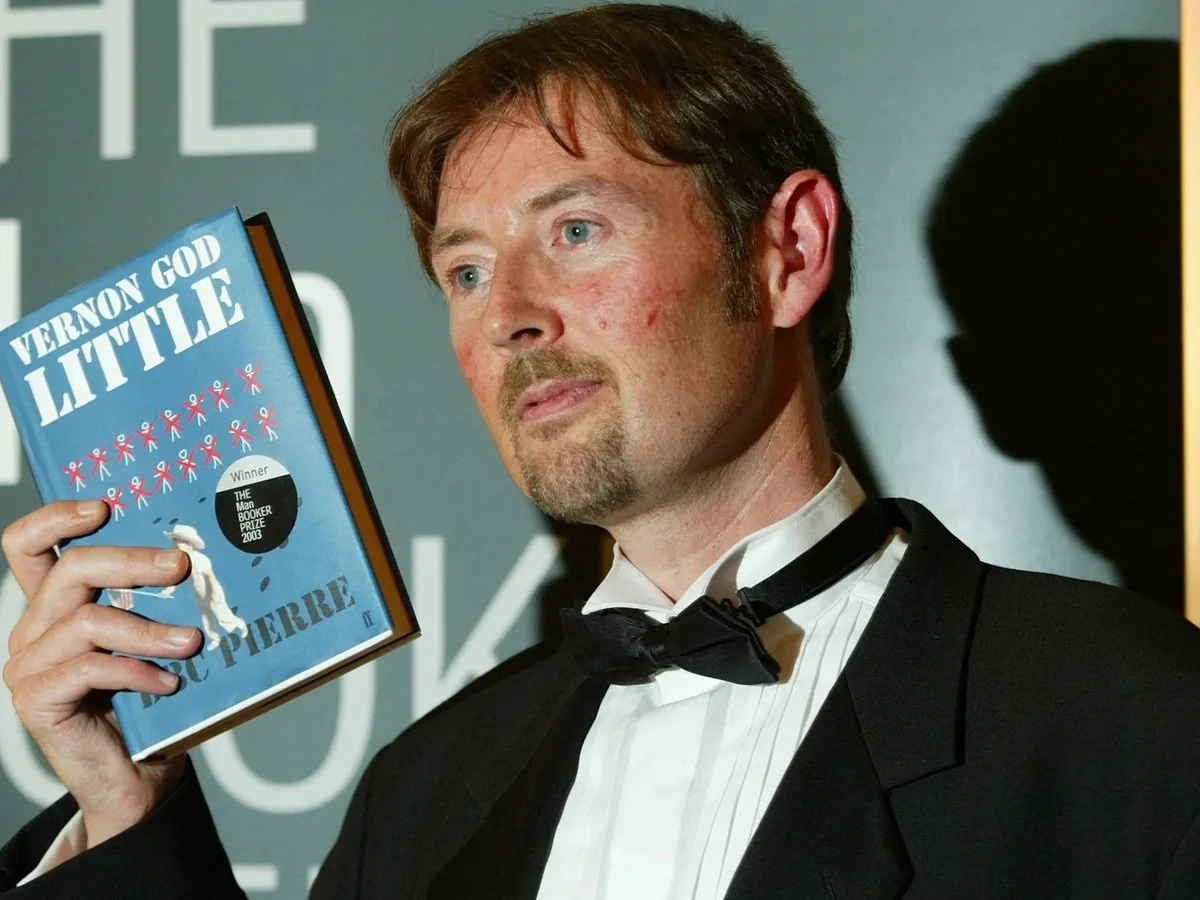Satire with Purpose: The Function of Humor in Vernon God Little
This literary analysis examines how humor and emotion shape the core message of a story. In this essay, I delve into the relationship between these elements. Through the dissection of plot and character, I uncover the impact of utilizing humor to tell important, meaningful stories.
In 2003, Vernon God Little, a novel written by DBC Pierre, won the Man Booker Prize. The selection of Vernon God Little was a surprising and contentious matter, largely because of the satirical/humorous nature of the book. Most books that usually win the prize are written in a serious tone and filled to the brim with elegant prose. They tend to focus more on the quality of their sentences rather than the story they wish to tell. While Pierre’s novel does address serious problems such as gun violence and racial inequality, the format of the book is less prim, and the prose is written from the perspective of a teenage boy; plenty of sentences include words such as “fucken”, “ass”, or “dick”. As James Walton from the Booker Prize podcast discusses, Vernon God Little was “one of the more unexpected Booker winners I think possibly ever” and it was “cool and hip” which “naturally led to controversy” (Episode 5: The Strange Case of Vernon God Little). Those who disagreed with its selection likely frowned upon the use of humor on such problematic, grave issues, that permeate North America: school shootings, bad press, racial inequality, an unfair judicial system, and the list goes on. I, however, argue that the use of humor in Pierre’s novel is the most humane and authentic way to approach these issues. While the novel is satirical, the reader isn’t left laughing. Instead, we are left grappling with the absurdity of the problems that we’ve invented and, despite their consequences, continue to perpetuate. In Vernon God Little, evils such as racial prejudice, judicial inequality, and journalistic falsehoods, are approached through the voice of a desperate, isolated, and yes, funny, teenager, but that doesn’t make the novel any less effective in addressing serious issues. Humor is just one of the many human emotions that we travel through when dealing with pain. Writing without it would be an inaccurate depiction of the human experience. As Pierre said himself, “…look at us – we are gloriously absurd, forgivable in general but with a great appetite for darkness and pain, and for playing with fire. Humour, I think, is a therapeutic reaction from the unconscious, where horror lives” (Famous Writing Routines).
The novel begins the day after Vernon Little’s closest friend, Jesus, commits a school shooting in their small town near the Mexico border in Martirio, Texas. Because of Vernon’s association with Jesus, he is immediately suspected of being an accessory to the murders. Since Jesus took his own life after killing his classmates, the town was desperate for a scapegoat to place the blame on. After a supposed CNN reporter, Lally, comes to town and promises to help Vernon, but instead, releases news stories that reflect poorly on him, Vernon’s public image severely declines. This negative response from the community leads to his detainment and eventual placement on death row. Many factors led to Vernon’s downfall, but the first and most important, is the racial prejudice of the community. Jesus was a Mexican immigrant, mocked and belittled by his classmates, community, and law enforcement, for not being white. Himansu S. Mohapatra writes about the American racial divide present in the novel, in their article, “The Real within the Hyper-real: Identity and Social Location in Vernon God Little”. Mohapatra explains that Jesus is “demonized by a society which is ruled by a white supremacist ideology” and Vernon reaps the consequences of racism, simply because of being his friend (70, 72). As Mohapatra explains, racism is the catalyst that leads to the school shooting and Vernon’s demise. This much becomes clear when we read about the events that led to Jesus leaving the school and finding a gun.
